- Home
- George R. R. Martin
A Dance with Dragons Page 5
A Dance with Dragons Read online
Page 5
with a toss of her head. “There. How have I done?”
“Your Radiance has stated the case much better than I could have hoped to do myself. I see that you are eloquent as well as beautiful. I am quite persuaded.”
She had to laugh. “Ah, but I am not.”
“Your Magnificence,” whispered Reznak mo Reznak in her ear, “it is customary for the city to claim one-tenth of all the profits from the fighting pits, after expenses, as a tax. That coin might be put to many noble uses.”
“It might… though if we were to reopen the pits, we should take our tenth before expenses. I am only a young girl and know little of such matters, but I dwelt with Xaro Xhoan Daxos long enough to learn that much.
Hizdahr, if you could marshal armies as you marshal arguments, you could conquer the world… but my answer is still no. For the sixth time.”
“The queen has spoken.” He bowed again, as deeply as before. His pearls and amethysts clattered softly against the marble floor. A very limber man was Hizdahr zo Loraq.
He might be handsome, but for that silly hair. Reznak and the Green Grace had been urging Dany to take a Meereenese noble for her husband, to reconcile the city to her rule. Hizdahr zo Loraq might be worth a careful look. Sooner him than Skahaz. The Shavepate had offered to set aside his wife for her, but the notion made her shudder. Hizdahr at least knew how to smile.
“Magnificence,” said Reznak, consulting his list, “the noble Grazdan zo Galare would address you. Will you hear him?”
“It would be my pleasure,” said Dany, admiring the glimmer of the gold and the sheen of the green pearls on Cleon’s slippers while doing her best to ignore the pinching in her toes. Grazdan, she had been forewarned, was a cousin of the Green Grace, whose support she had found invaluable. The priestess was a voice for peace, acceptance, and obedience to lawful authority. I can give her cousin a respectful hearing, whatever he desires.
What he desired turned out to be gold. Dany had refused to compensate any of the Great Masters for the value of their slaves, but the Meereenese kept devising other ways to squeeze coin from her. The noble Grazdan had once owned a slave woman who was a very fine weaver, it seemed; the fruits of her loom were greatly valued, not only in Meereen, but in New Ghis and Astapor and Qarth. When this woman had grown old, Grazdan had purchased half a dozen young girls and commanded the crone to instruct them in the secrets of her craft. The old woman was dead now. The young ones, freed, had opened a shop by the harbor wall to sell their weavings. Grazdan zo Galare asked that he be granted a portion of their earnings. “They owe their skill to me,” he insisted. “I plucked them from the auction bloc and gave them to the loom.”
Dany listened quietly, her face still. When he was done, she said, “What was the name of the old weaver?”
“The slave?” Grazdan shifted his weight, frowning. “She was… Elza, it might have been. Or Ella. It was six years ago she died. I have owned so many slaves, Your Grace.”
“Let us say Elza. Here is our ruling. From the girls, you shall have nothing. It was Elza who taught them weaving, not you. From you, the girls shall have a new loom, the finest coin can buy. That is for forgetting the name of the old woman.”
Reznak would have summoned another tokar next, but Dany insisted that he call upon a freedman. Thereafter she alternated between the former masters and the former slaves. Many and more of the matters brought before her involved redress. Meereen had been sacked savagely after its fall. The stepped pyramids of the mighty had been spared the worst of the ravages, but the humbler parts of the city had been given over to an orgy of looting and killing as the city’s slaves rose up and the starving hordes who had followed her from Yunkai and Astapor poured through the broken gates. Her Unsullied had finally restored order, but the sack left a plague of problems in its wake. And so they came to see the queen.
A rich woman came, whose husband and sons had died defending the city walls. During the sack she had fled to her brother in fear. When she returned, she found her house had been turned into a brothel. The whores had bedecked themselves in her jewels and clothes. She wanted her house back, and her jewels. “They can keep the clothes,” she allowed. Dany granted her the jewels but ruled the house was lost when she abandoned it.
A former slave came, to accuse a certain noble of the Zhak. The man had recently taken to wife a freedwoman who had been the noble’s bed-warmer before the city fell. The noble had taken her maidenhood, used her for his pleasure, and gotten her with child. Her new husband wanted the noble gelded for the crime of rape, and he wanted a purse of gold as well, to pay him for raising the noble’s bastard as his own. Dany granted him the gold, but not the gelding. “When he lay with her, your wife was his property, to do with as he would. By law, there was no rape.” Her decision did not please him, she could see, but if she gelded every man who ever forced a bedslave, she would soon rule a city of eunuchs.
A boy came, younger than Dany, slight and scarred, dressed up in a frayed grey tokar trailing silver fringe. His voice broke when he told of how two of his father’s household slaves had risen up the night the gate broke. One had slain his father, the other his elder brother. Both had raped his mother before killing her as well. The boy had escaped with no more than the scar upon his face, but one of the murderers was still living in his father’s house, and the other had joined the queen’s soldiers as one of the Mother’s Men. He wanted them both hanged.
I am queen over a city built on dust and death. Dany had no choice but to deny him. She had declared a blanket pardon for all crimes committed during the sack. Nor would she punish slaves for rising up against their masters.
When she told him, the boy rushed at her, but his feet tangled in his tokar and he went sprawling headlong on the purple marble. Strong Belwas was on him at once. The huge brown eunuch yanked him up one-handed and shook him like a mastiff with a rat. “Enough, Belwas,” Dany called. “Release him.” To the boy she said, “Treasure that tokar, for it saved your life. You are only a boy, so we will forget what happened here. You should do the same.” But as he left the boy looked back over his shoulder, and when she saw his eyes Dany thought, The Harpy has another Son.
By midday Daenerys was feeling the weight of the crown upon her head, and the hardness of the bench beneath her. With so many still waiting on her pleasure, she did not stop to eat. Instead she dispatched Jhiqui to the kitchens for a platter of flatbread, olives, figs, and cheese. She nibbled whilst she listened, and sipped from a cup of watered wine. The figs were fine, the olives even finer, but the wine left a tart metallic aftertaste in her mouth. The small pale yellow grapes native to these regions produced a notably inferior vintage. We shall have no trade in wine. Besides, the Great Masters had burned the best arbors along with the olive trees.
In the afternoon a sculptor came, proposing to replace the head of the great bronze harpy in the Plaza of Purification with one cast in Dany’s image. She denied him with as much courtesy as she could muster. A pike of unprecedented size had been caught in the Skahazadhan, and the fisherman wished to give it to the queen. She admired the fish extravagantly, rewarded the fisherman with a purse of silver, and sent the pike to her kitchens. A coppersmith had fashioned her a suit of burnished rings to wear to war. She accepted it with fulsome thanks; it was lovely to behold, and all that burnished copper would flash prettily in the sun, though if actual battle threatened, she would sooner be clad in steel. Even a young girl who knew nothing of the ways of war knew that.
The slippers the Butcher King had sent her had grown too uncomfortable. Dany kicked them off and sat with one foot tucked beneath her and the other swinging back and forth. It was not a very regal pose, but she was tired of being regal. The crown had given her a headache, and her buttocks had gone to sleep. “Ser Barristan,” she called, “I know what quality a king needs most.”
“Courage, Your Grace?”
“Cheeks like iron,” she teased. “All I do is sit.”
“Your Grace takes too mu
ch on herself. You should allow your councillors to shoulder more of your burdens.”
“I have too many councillors and too few cushions.” Dany turned to Reznak. “How many more?”
“Three-and-twenty, if it please Your Magnificence. With as many claims.” The seneschal consulted some papers. “One calf and three goats. The rest will be sheep or lambs, no doubt.”
“Three-and-twenty.” Dany sighed. “My dragons have developed a prodigious taste for mutton since we began to pay the shepherds for their kills. Have these claims been proven?”
“Some men have brought burnt bones.”
“Men make fires. Men cook mutton. Burnt bones prove nothing. Brown Ben says there are red wolves in the hills outside the city, and jackals and wild dogs. Must we pay good silver for every lamb that goes astray between Yunkai and the Skahazadhan?”
“No, Magnificence.” Reznak bowed. “Shall I send these rascals away, or will you want them scourged?”
Daenerys shifted on the bench. “No man should ever fear to come to me.” Some claims were false, she did not doubt, but more were genuine. Her dragons had grown too large to be content with rats and cats and dogs. The more they eat, the larger they will grow, Ser Barristan had warned her, and the larger they grow, the more they’ll eat. Drogon especially ranged far afield and could easily devour a sheep a day. “Pay them for the value of their animals,” she told Reznak, “but henceforth claimants must present themselves at the Temple of the Graces and swear a holy oath before the gods of Ghis.”
“It shall be done.” Reznak turned to the petitioners. “Her Magnificence the Queen has consented to compensate each of you for the animals you have lost,” he told them in the Ghiscari tongue. “Present yourselves to my factors on the morrow, and you shall be paid in coin or kind, as you prefer.”
The pronouncement was received in sullen silence. You would think they might be happier, Dany thought. They have what they came for. Is there no way to please these people?
One man lingered behind as the rest were filing out—a squat man with a windburnt face, shabbily dressed. His hair was a cap of coarse red-black wire cropped about his ears, and in one hand he held a sad cloth sack. He stood with his head down, gazing at the marble floor as if he had quite forgotten where he was. And what does this one want? Dany wondered.
“All kneel for Daenerys Stormborn, the Unburnt, Queen of Meereen, Queen of the Andals and the Rhoynar and the First Men, Khaleesi of Great Grass Sea, Breaker of Shackles, and Mother of Dragons,” cried Missandei in her high, sweet voice.
As Dany stood, her tokar began to slip. She caught it and tugged it back in place. “You with the sack,” she called, “did you wish to speak with us? You may approach.”
When he raised his head, his eyes were red and raw as open sores. Dany glimpsed Ser Barristan sliding closer, a white shadow at her side. The man approached in a stumbling shuffle, one step and then another, clutching his sack. Is he drunk, or ill? she wondered. There was dirt beneath his cracked yellow fingernails.
“What is it?” Dany asked. “Do you have some grievance to lay before us, some petition? What would you have of us?”
His tongue flicked nervously over chapped, cracked lips. “I… I brought…”
“Bones?” she said, impatiently. “Burnt bones?”
He lifted the sack, and spilled its contents on the marble.
Bones they were, broken bones and blackened. The longer ones had been cracked open for their marrow.
“It were the black one,” the man said, in a Ghiscari growl, “the winged shadow. He come down from the sky and… and…”
No. Dany shivered. No, no, oh no.
“Are you deaf, fool?” Reznak mo Reznak demanded of the man. “Did you not hear my pronouncement? See my factors on the morrow, and you shall be paid for your sheep.”
“Reznak,” Ser Barristan said quietly, “hold your tongue and open your eyes. Those are no sheep bones.”
No, Dany thought, those are the bones of a child.
JON
The white wolf raced through a black wood, beneath a pale cliff as tall as the sky. The moon ran with him, slipping through a tangle of bare branches overhead, across the starry sky.
“Snow,” the moon murmured. The wolf made no answer. Snow crunched beneath his paws. The wind sighed through the trees.
Far off, he could hear his packmates calling to him, like to like. They were hunting too. A wild rain lashed down upon his black brother as he tore at the flesh of an enormous goat, washing the blood from his side where the goat’s long horn had raked him. In another place, his little sister lifted her head to sing to the moon, and a hundred small grey cousins broke off their hunt to sing with her. The hills were warmer where they were, and full of food. Many a night his sister’s pack gorged on the flesh of sheep and cows and horses, the prey of men, and sometimes even on the flesh of man himself.
“Snow,” the moon called down again, cackling. The white wolf padded along the man trail beneath the icy cliff. The taste of blood was on his tongue, and his ears rang to the song of the hundred cousins. Once they had been six, five whimpering blind in the snow beside their dead mother, sucking cool milk from her hard dead nipples whilst he crawled off alone. Four remained… and one the white wolf could no longer sense.
“Snow,” the moon insisted.
The white wolf ran from it, racing toward the cave of night where the sun had hidden, his breath frosting in the air. On starless nights the great cliff was as black as stone, a darkness towering high above the wide world, but when the moon came out it shimmered pale and icy as a frozen stream. The wolf’s pelt was thick and shaggy, but when the wind blew along the ice no fur could keep the chill out. On the other side the wind was colder still, the wolf sensed. That was where his brother was, the grey brother who smelled of summer.
“Snow.” An icicle tumbled from a branch. The white wolf turned and bared his teeth. “Snow!” His fur rose bristling, as the woods dissolved around him. “Snow, snow, snow!” He heard the beat of wings. Through the gloom a raven flew.
It landed on Jon Snow’s chest with a thump and a scrabbling of claws. “SNOW!” it screamed into his face.
“I hear you.” The room was dim, his pallet hard. Grey light leaked through the shutters, promising another bleak cold day. “Is this how you woke Mormont? Get your feathers out of my face.” Jon wriggled an arm out from under his blankets to shoo the raven off. It was a big bird, old and bold and scruffy, utterly without fear. “Snow,” it cried, flapping to his bedpost. “Snow, snow.” Jon filled his fist with a pillow and let fly, but the bird took to the air. The pillow struck the wall and burst, scattering stuffing everywhere just as Dolorous Edd Tollett poked his head through the door. “Beg pardon,” he said, ignoring the flurry of feathers, “shall I fetch m’lord some breakfast?”
“Corn,” cried the raven. “Corn, corn.”
“Roast raven,” Jon suggested. “And half a pint of ale.” Having a steward fetch and serve for him still felt strange; not long ago, it would have been him fetching breakfast for Lord Commander Mormont.
“Three corns and one roast raven,” said Dolorous Edd. “Very good, m’lord, only Hobb’s made boiled eggs, black sausage, and apples stewed with prunes. The apples stewed with prunes are excellent, except for the prunes. I won’t eat prunes myself. Well, there was one time when Hobb chopped them up with chestnuts and carrots and hid them in a hen. Never trust a cook, my lord. They’ll prune you when you least expect it.”
“Later.” Breakfast could wait; Stannis could not. “Any trouble from the stockades last night?”
“Not since you put guards on the guards, m’lord.”
“Good.” A thousand wildlings had been penned up beyond the Wall, the captives Stannis Baratheon had taken when his knights had smashed Mance Rayder’s patchwork host. Many of the prisoners were women, and some of the guards had been sneaking them out to warm their beds. King’s men, queen’s men, it did not seem to matter; a few black brothers had trie
d the same thing. Men were men, and these were the only women for a thousand leagues.
“Two more wildlings turned up to surrender,” Edd went on. “A mother with a girl clinging to her skirts. She had a boy babe too, all swaddled up in fur, but he was dead.”
“Dead,” said the raven. It was one of the bird’s favorite words. “Dead, dead, dead.”
They had free folk drifting in most every night, starved half-frozen creatures who had run from the battle beneath the Wall only to crawl back when they realized there was no safe place to run to. “Was the mother questioned?” Jon asked. Stannis Baratheon had smashed Mance Rayder’s host and made the King-Beyond-the-Wall his captive… but the wildlings were still out there, the Weeper and Tormund Giantsbane and thousands more.
“Aye, m’lord,” said Edd, “but all she knows is that she ran off during the battle and hid in the woods after. We filled her full of porridge, sent her to the pens, and burned the babe.”
Burning dead children had ceased to trouble Jon Snow; live ones were another matter. Two kings to wake the dragon. The father first and then the son, so both die kings. The words had been murmured by one of the queen’s men as Maester Aemon had cleaned his wounds. Jon had tried to dismiss them as his fever talking. Aemon had demurred. “There is power in a king’s blood,” the old maester had warned, “and better men than Stannis have done worse things than this.” The king can be harsh and unforgiving, aye, but a babe still on the breast? Only a monster would give a living child to the flames.
Jon pissed in darkness, filling his chamber pot as the Old Bear’s raven muttered complaints. The wolf dreams had been growing stronger, and he found himself remembering them even when awake. Ghost knows that Grey Wind is dead. Robb had died at the Twins, betrayed by men he’d believed his friends, and his wolf had perished with him. Bran and Rickon had been murdered too, beheaded at the behest of Theon Greyjoy, who had once been their lord father’s ward… but if dreams did not lie, their direwolves had escaped. At Queenscrown, one had come out of the darkness to save Jon’s life. Summer, it had to be. His fur was grey, and Shaggydog is black. He wondered if some part of his dead brothers lived on inside their wolves.
He filled his basin from the flagon of water beside his bed, washed his face and hands, donned a clean set of black woolens, laced up a black leather jerkin, and pulled on a pair of well-worn boots. Mormont’s raven watched with shrewd black eyes, then fluttered to the window. “Do you take me for your thrall?” When Jon folded back the window with its thick diamond-shaped panes of yellow glass, the chill of the morning hit him in the face. He took a breath to clear away the cobwebs of the night as the raven flapped away. That bird is too clever by half. It had been the Old Bear’s companion for long years, but that had not stopped it from eating Mormont’s face once he died.
Outside his bedchamber a flight of steps descended to a larger room furnished with a scarred pinewood table and a dozen oak-and-leather chairs. With Stannis in the King’s Tower and the Lord Commander’s Tower burned to a shell, Jon had established himself in Donal Noye’s modest rooms behind the armory. In time, no doubt, he would need larger quarters, but for the moment these would serve whilst he accustomed himself to command.
The grant that the king had presented him for signature was on the table beneath a silver drinking cup that had once been Donal Noye’s. The one-armed smith had left few personal effects: the cup, six pennies and a copper star, a niello brooch with a broken clasp, a musty brocade doublet that bore the stag of Storm’s End. His treasures were his tools, and the swords and knives he made. His life was at the forge. Jon moved the cup aside and read the parchment once again. If I put my seal to this, I will forever be remembered as the lord commander who gave away the Wall, he thought, but if I should refuse…
Stannis Baratheon was proving to be a prickly guest, and a restless one. He had ridden down the kingsroad almost as far as Queenscrown, prowled through the empty hovels of Mole’s Town, inspected the ruined forts at Queensgate and Oakenshield. Each night he walked atop the Wall with Lady Melisandre, and during the days he visited the stockades, picking captives out for the red woman to question. He does not like to be balked. This would not be a pleasant morning, Jon feared.
From the armory came a clatter of shields and swords, as the latest lot of boys and raw recruits armed themselves. He could hear the voice of Iron Emmett telling them to be quick about it. Cotter Pyke had not been pleased to lose him, but the young ranger had a gift for training men. He loves to fight, and he’ll teach his boys to love it too. Or so he hoped.
Jon’s cloak hung on a peg by the door, his sword belt on another. He donned them both and made his way to the armory. The rug where Ghost slept was empty, he saw. Two guardsmen stood inside the doors, clad in black cloaks and iron halfhelms, spears in their hands. “Will m’lord be wanting a tail?” asked Garse.
“I think I can find the King’s Tower by myself.” Jon hated having guards trailing after him everywhere he went. It made him feel like a mother duck leading a procession of ducklings.
Iron Emmett’s lads were well at it in the yard, blunted swords slamming into shields and ringing against one another. Jon stopped to watch a moment as Horse pressed Hop-Robin back toward the well. Horse had the makings of a good fighter, he decided. He was strong and getting stronger, and his instincts were sound. Hop-Robin was another tale. His clubfoot was bad enough, but he was afraid of getting hit as well. Perhaps we can make a steward of him. The fight ended abruptly, with Hop-Robin on the ground.
“Well fought,” Jon said to Horse, “but you drop your shield too low when pressing an attack. You will want to correct that, or it is like to get you killed.”
“Yes, m’lord. I’ll keep it higher next time.” Horse pulled Hop-Robin to his feet, and the smaller boy made a clumsy bow.
A few of Stannis’s knights were sparring on the far side of the yard. King’s men in one corner and queen’s men in another, Jon did not fail to note, but only a few. It’s too cold for most of them. As he strode past them, a booming voice called after him. “BOY! YOU THERE! BOY!”
Boy was not the worst of the things that Jon Snow had been called since being chosen lord commander. He ignored it.
“Snow,” the voice insisted, “Lord Commander.”
This time he stopped. “Ser?”
The knight overtopped him by six inches. “A man who bears Valyrian steel should use it for more than scratching his arse.”
Jon had seen this one about the castle—a knight of great renown, to hear him tell it. During the battle beneath the Wall, Ser Godry Farring had slain a fleeing giant, pounding after him on horseback and driving a lance through his back, then dismounting to hack off the creature’s pitiful small head. The queen’s men had taken to calling him Godry the Giantslayer.
Jon remembered Ygritte, crying. I am the last of the giants. “I use Longclaw when I must, ser.”
“How well, though?” Ser Godry drew his own blade. “Show us. I promise not to hurt you, lad.”
How kind of you. “Some other time, ser. I fear that I have other duties just now.”
“You fear. I see that.” Ser Godry grinned at his friends. “He fears,” he repeated, for the slow ones.
“You will excuse me.” Jon showed them his back.

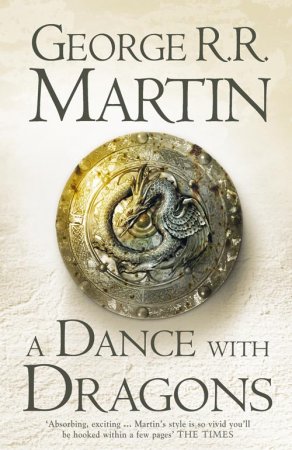 A Dance with Dragons
A Dance with Dragons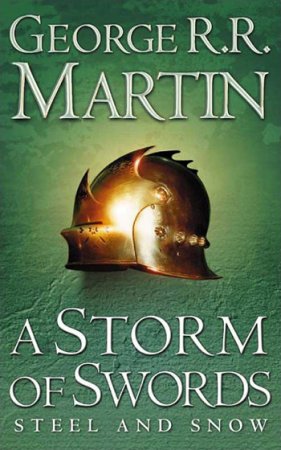 A Storm of Swords
A Storm of Swords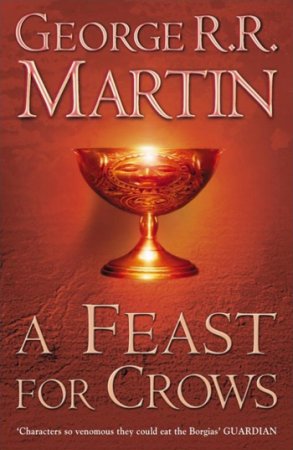 A Feast for Crows
A Feast for Crows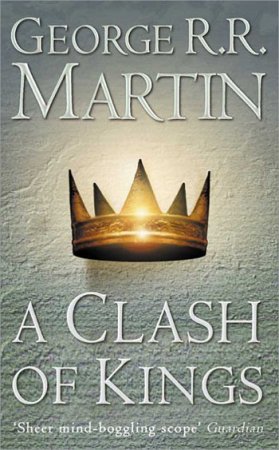 A Clash of Kings
A Clash of Kings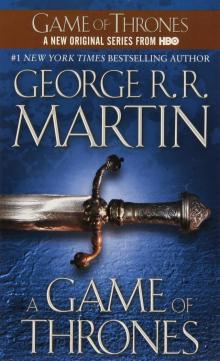 A Game of Thrones
A Game of Thrones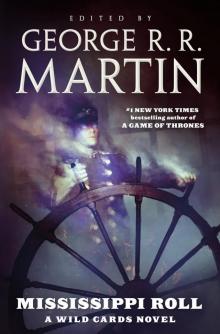 Mississippi Roll
Mississippi Roll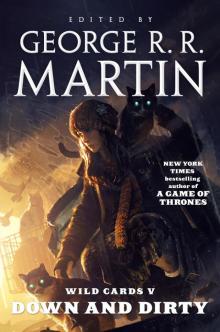 Wild Cards V: Down and Dirty
Wild Cards V: Down and Dirty Busted Flush
Busted Flush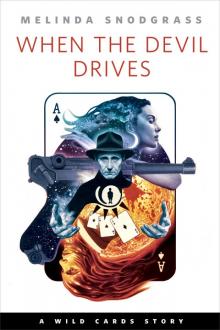 When the Devil Drives
When the Devil Drives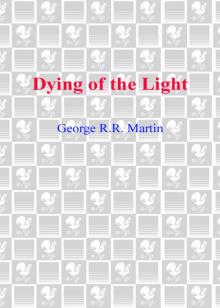 Dying of the Light
Dying of the Light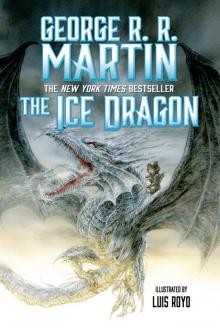 The Ice Dragon
The Ice Dragon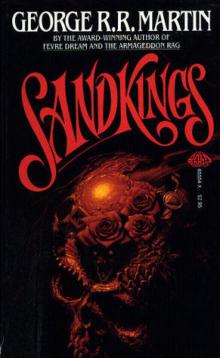 Sandkings
Sandkings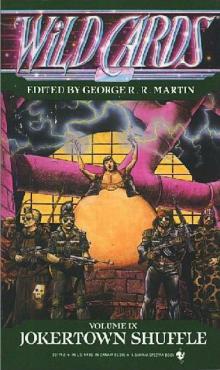 Jokertown Shuffle
Jokertown Shuffle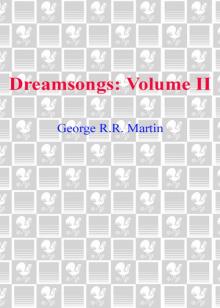 Dreamsongs. Volume II
Dreamsongs. Volume II Deuces Down
Deuces Down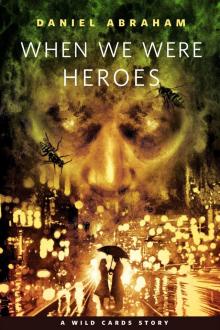 When We Were Heroes
When We Were Heroes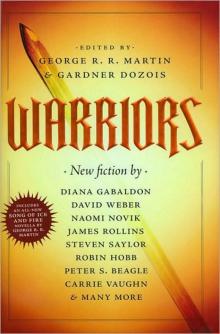 Warriors
Warriors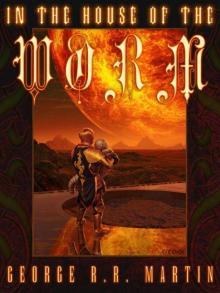 In the House of the Worm
In the House of the Worm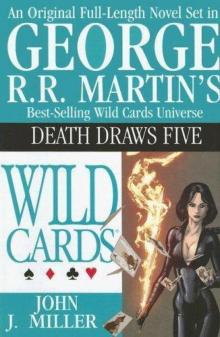 Death Draws Five
Death Draws Five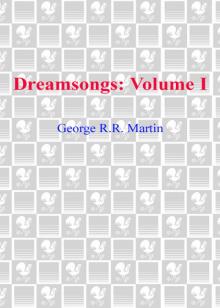 Dreamsongs. Volume I
Dreamsongs. Volume I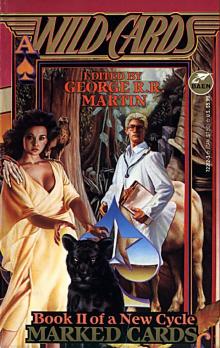 Marked Cards
Marked Cards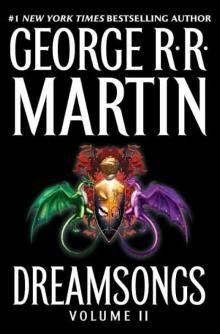 Dreamsongs
Dreamsongs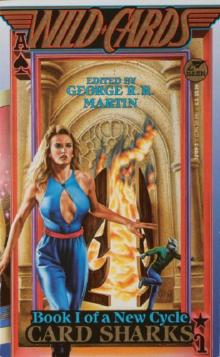 Card Sharks
Card Sharks Dangerous Women
Dangerous Women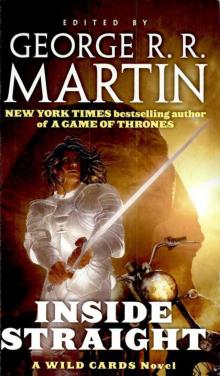 Inside Straight
Inside Straight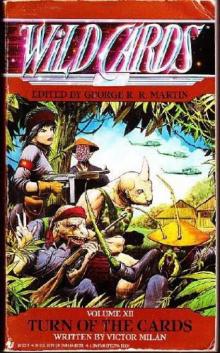 Turn of the Cards
Turn of the Cards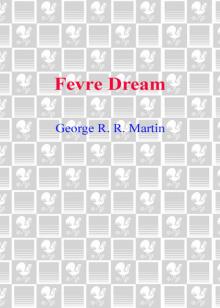 Fevre Dream
Fevre Dream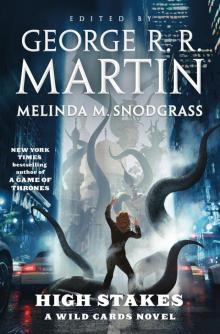 High Stakes: A Wild Cards Novel
High Stakes: A Wild Cards Novel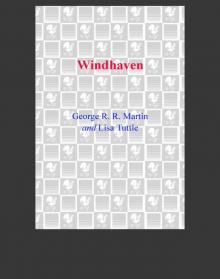 Windhaven
Windhaven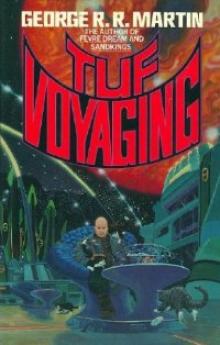 Tuf Voyaging
Tuf Voyaging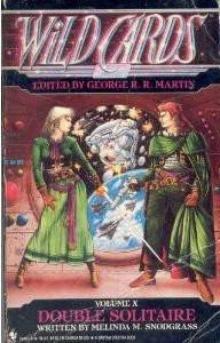 Double Solitaire
Double Solitaire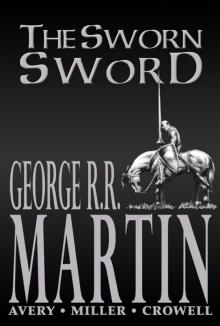 The Sworn Sword
The Sworn Sword Low Chicago
Low Chicago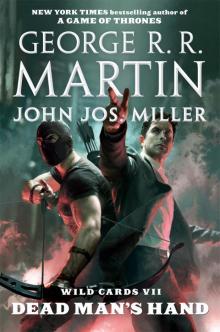 Dead Man's Hand
Dead Man's Hand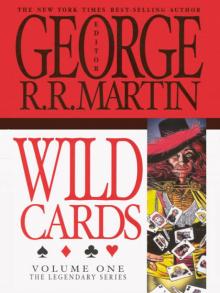 Wild Cards
Wild Cards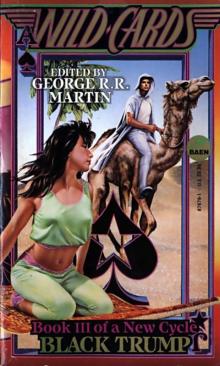 Black Trump
Black Trump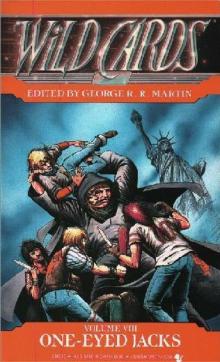 One Eyed Jacks
One Eyed Jacks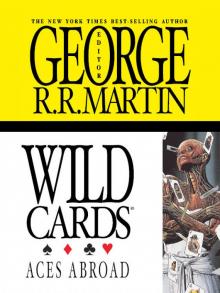 Wild Cards: Aces Abroad
Wild Cards: Aces Abroad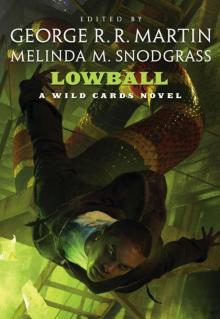 Lowball: A Wild Cards Novel
Lowball: A Wild Cards Novel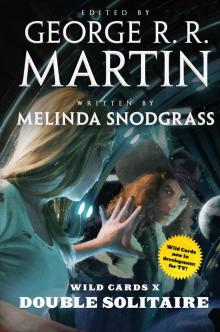 Double Solitaire (2019 Edition)
Double Solitaire (2019 Edition)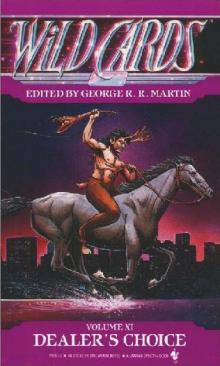 Dealer's Choice
Dealer's Choice Ace in the Hole
Ace in the Hole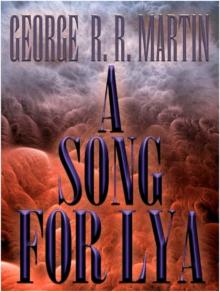 A Song for Lya: And Other Stories
A Song for Lya: And Other Stories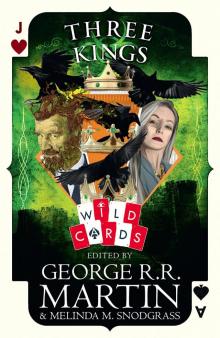 Three Kings
Three Kings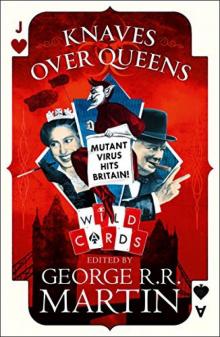 Knaves Over Queens
Knaves Over Queens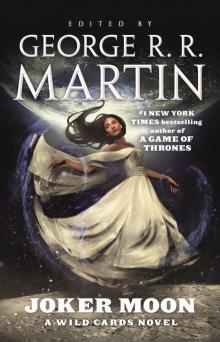 Joker Moon
Joker Moon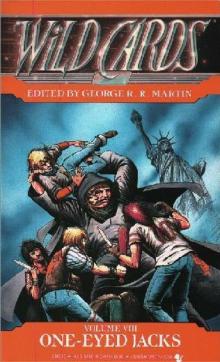 One Eyed Jacks wc-8
One Eyed Jacks wc-8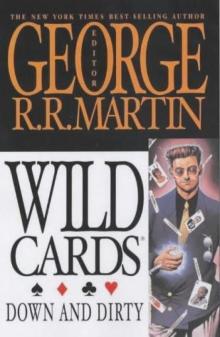 Down And Dirty wc-5
Down And Dirty wc-5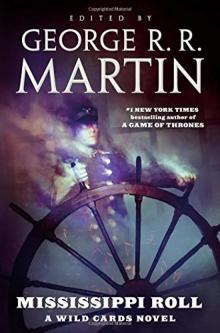 Mississippi Roll_A Wild Cards Novel
Mississippi Roll_A Wild Cards Novel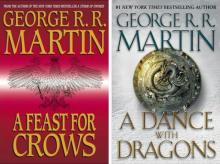 A Feast for Dragons
A Feast for Dragons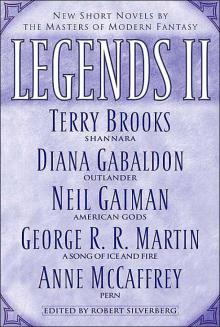 The Sworn Sword ttodae-2
The Sworn Sword ttodae-2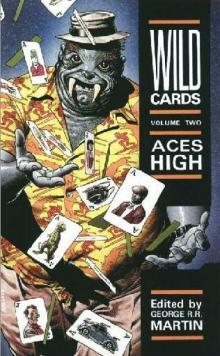 Aces High wc-2
Aces High wc-2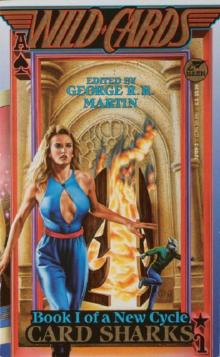 Wild Cards 13 : Card Sharks
Wild Cards 13 : Card Sharks Way of the Wizard
Way of the Wizard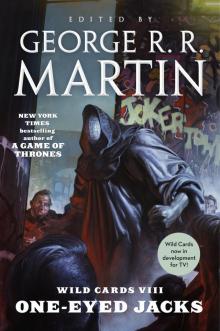 Wild Cards VIII: One-Eyed Jacks
Wild Cards VIII: One-Eyed Jacks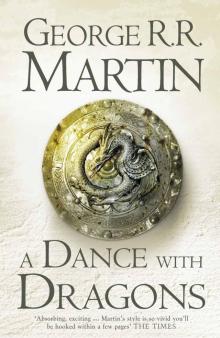 A Dance With Dragons: Book 5 of A Song of Ice and Fire (Song of Ice & Fire 5)
A Dance With Dragons: Book 5 of A Song of Ice and Fire (Song of Ice & Fire 5)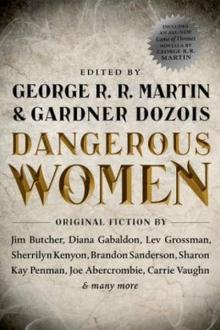 The Princess and The Queen, Or, The Blacks and The Greens (a song of ice and fire)
The Princess and The Queen, Or, The Blacks and The Greens (a song of ice and fire)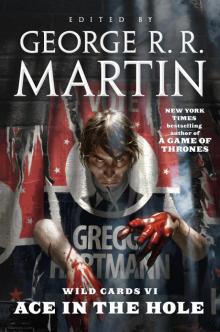 Wild Cards VI--Ace in the Hole
Wild Cards VI--Ace in the Hole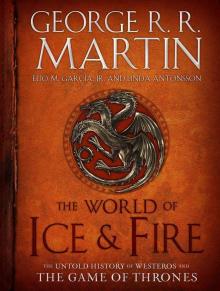 The World of Ice & Fire: The Untold History of Westeros and the Game of Thrones (A Song of Ice and Fire)
The World of Ice & Fire: The Untold History of Westeros and the Game of Thrones (A Song of Ice and Fire)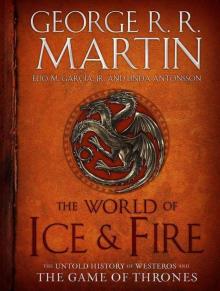 The World of Ice & Fire: The Untold History of Westeros and the Game of Thrones
The World of Ice & Fire: The Untold History of Westeros and the Game of Thrones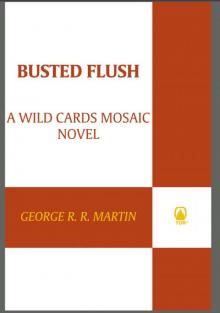 Busted Flush wc-19
Busted Flush wc-19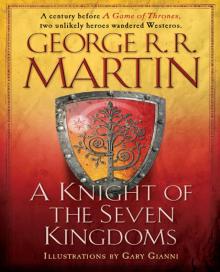 A Knight of the Seven Kingdoms
A Knight of the Seven Kingdoms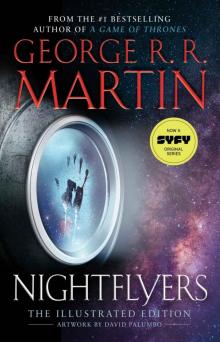 Nightflyers: The Illustrated Edition
Nightflyers: The Illustrated Edition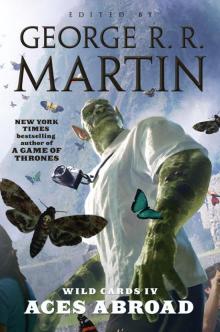 Wild Cards IV
Wild Cards IV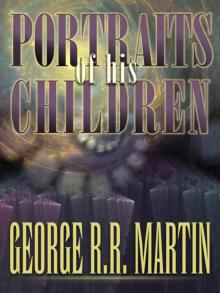 Portraits of His Children
Portraits of His Children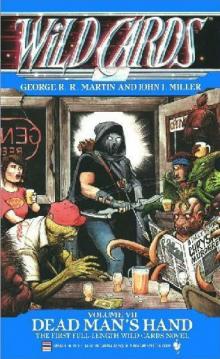 Dead Mans Hand wc-7
Dead Mans Hand wc-7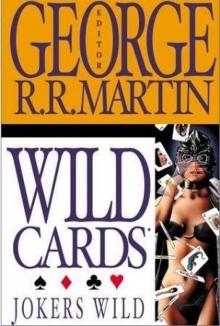 Jokers Wild wc-3
Jokers Wild wc-3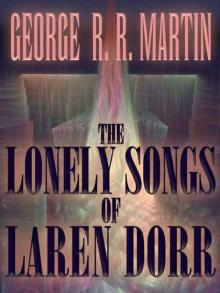 The Lonely Songs of Laren Dorr
The Lonely Songs of Laren Dorr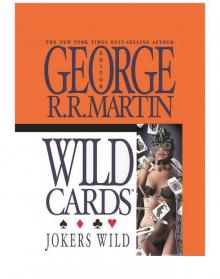 Wild Cards III: Jokers Wild
Wild Cards III: Jokers Wild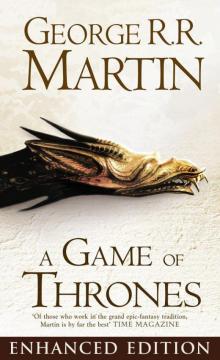 A Game of Thrones Enhanced Edition
A Game of Thrones Enhanced Edition Nightflyers & Other Stories
Nightflyers & Other Stories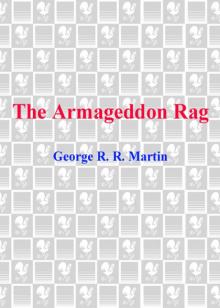 Armageddon Rag
Armageddon Rag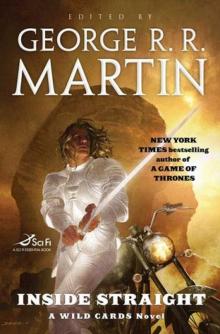 Wild Cards: Inside Straight
Wild Cards: Inside Straight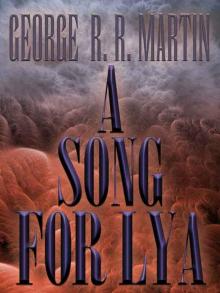 A Song for Lya
A Song for Lya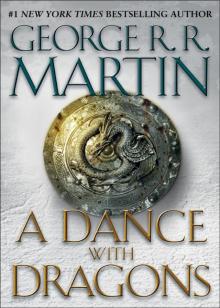 A Dance with Dragons: A Song of Ice and Fire: Book Five
A Dance with Dragons: A Song of Ice and Fire: Book Five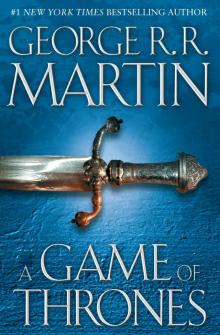 Song of Fire & Ice 01 - A Game of Thrones
Song of Fire & Ice 01 - A Game of Thrones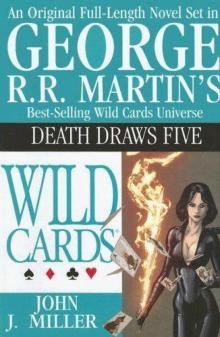 Death Draws Five wc-17
Death Draws Five wc-17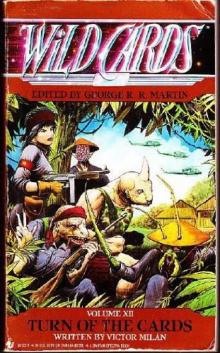 Turn of the Cards w-12
Turn of the Cards w-12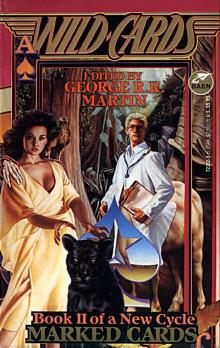 Wild Cards 14 - Marked Cards
Wild Cards 14 - Marked Cards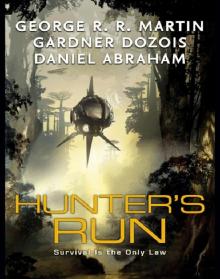 Hunter's Run
Hunter's Run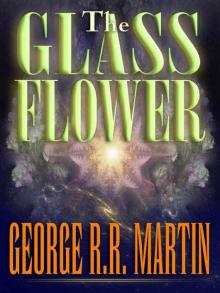 The Glass Flower
The Glass Flower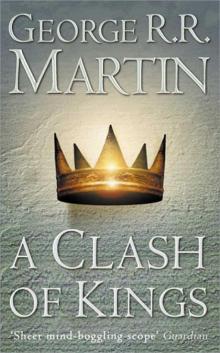 A Clash of Kings asoiaf-2
A Clash of Kings asoiaf-2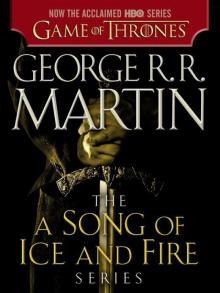 A Game of Thrones 5-Book Bundle: A Song of Ice and Fire Series: A Game of Thrones, A Clash of Kings, A Storm of Swords, A Feast for Crows, and A Dance with Dragons (Song of Ice & Fire)
A Game of Thrones 5-Book Bundle: A Song of Ice and Fire Series: A Game of Thrones, A Clash of Kings, A Storm of Swords, A Feast for Crows, and A Dance with Dragons (Song of Ice & Fire)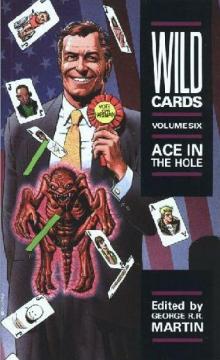 Ace In The Hole wc-6
Ace In The Hole wc-6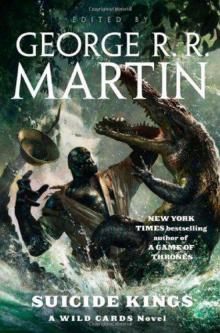 Suicide Kings wc-20
Suicide Kings wc-20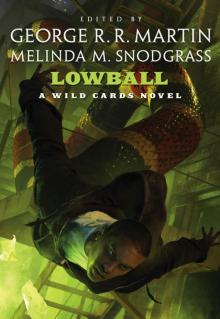 Lowball
Lowball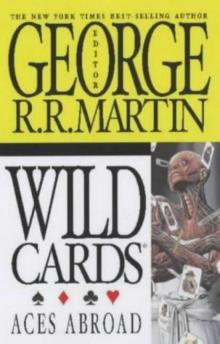 Aces Abroad wc-4
Aces Abroad wc-4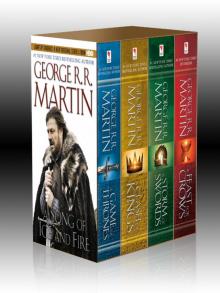 George R. R. Martin's a Game of Thrones 4-Book Bundle
George R. R. Martin's a Game of Thrones 4-Book Bundle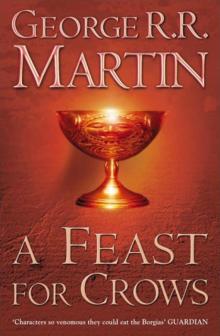 A Feast for Crows asoiaf-4
A Feast for Crows asoiaf-4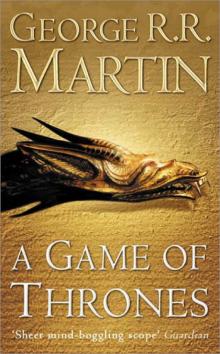 A Game of Thrones asoiaf-1
A Game of Thrones asoiaf-1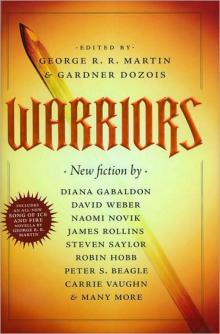 The Mystery Knight ttodae-3
The Mystery Knight ttodae-3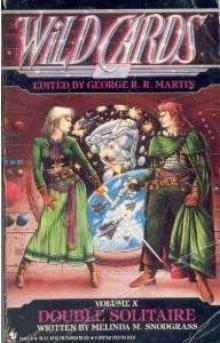 Double Solitaire w-10
Double Solitaire w-10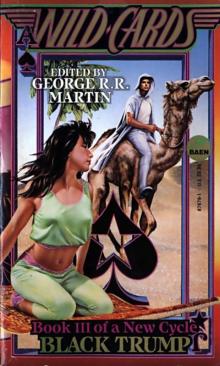 Wild Cards 15 - Black Trump
Wild Cards 15 - Black Trump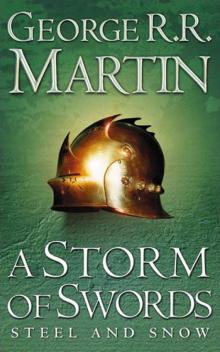 A Storm of Swords asoiaf-3
A Storm of Swords asoiaf-3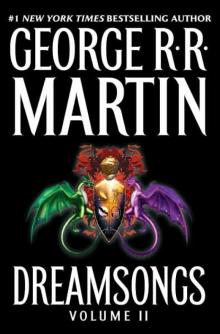 The Hedge Knight ttodae-1
The Hedge Knight ttodae-1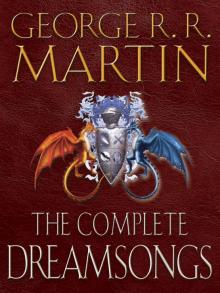 Dreamsongs 2-Book Bundle
Dreamsongs 2-Book Bundle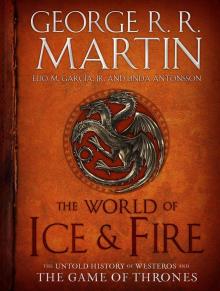 The World of Ice & Fire
The World of Ice & Fire Starlady & Fast-Friend
Starlady & Fast-Friend Old Mars
Old Mars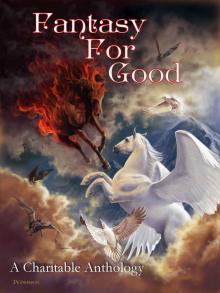 Fantasy For Good: A Charitable Anthology
Fantasy For Good: A Charitable Anthology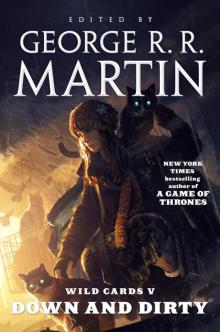 Wild Cards V
Wild Cards V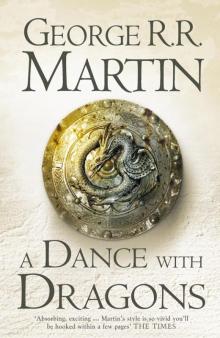 A Dance with Dragons asoiaf-5
A Dance with Dragons asoiaf-5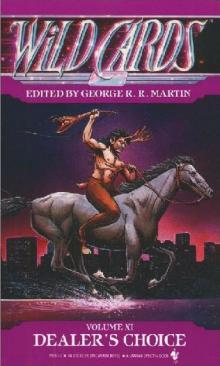 Dealer's Choice w-11
Dealer's Choice w-11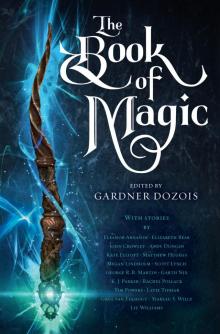 The Book of Magic
The Book of Magic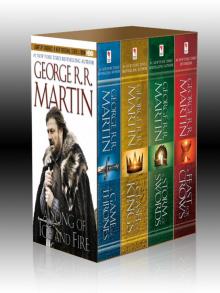 A Game of Thrones 4-Book Bundle
A Game of Thrones 4-Book Bundle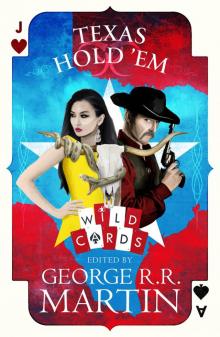 Texas Hold 'Em
Texas Hold 'Em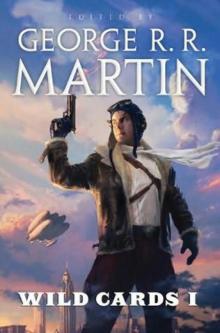 Wildcards wc-1
Wildcards wc-1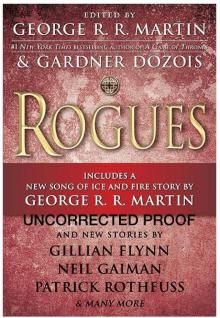 Rogues
Rogues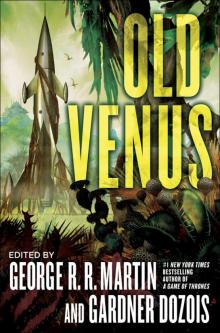 Old Venus
Old Venus